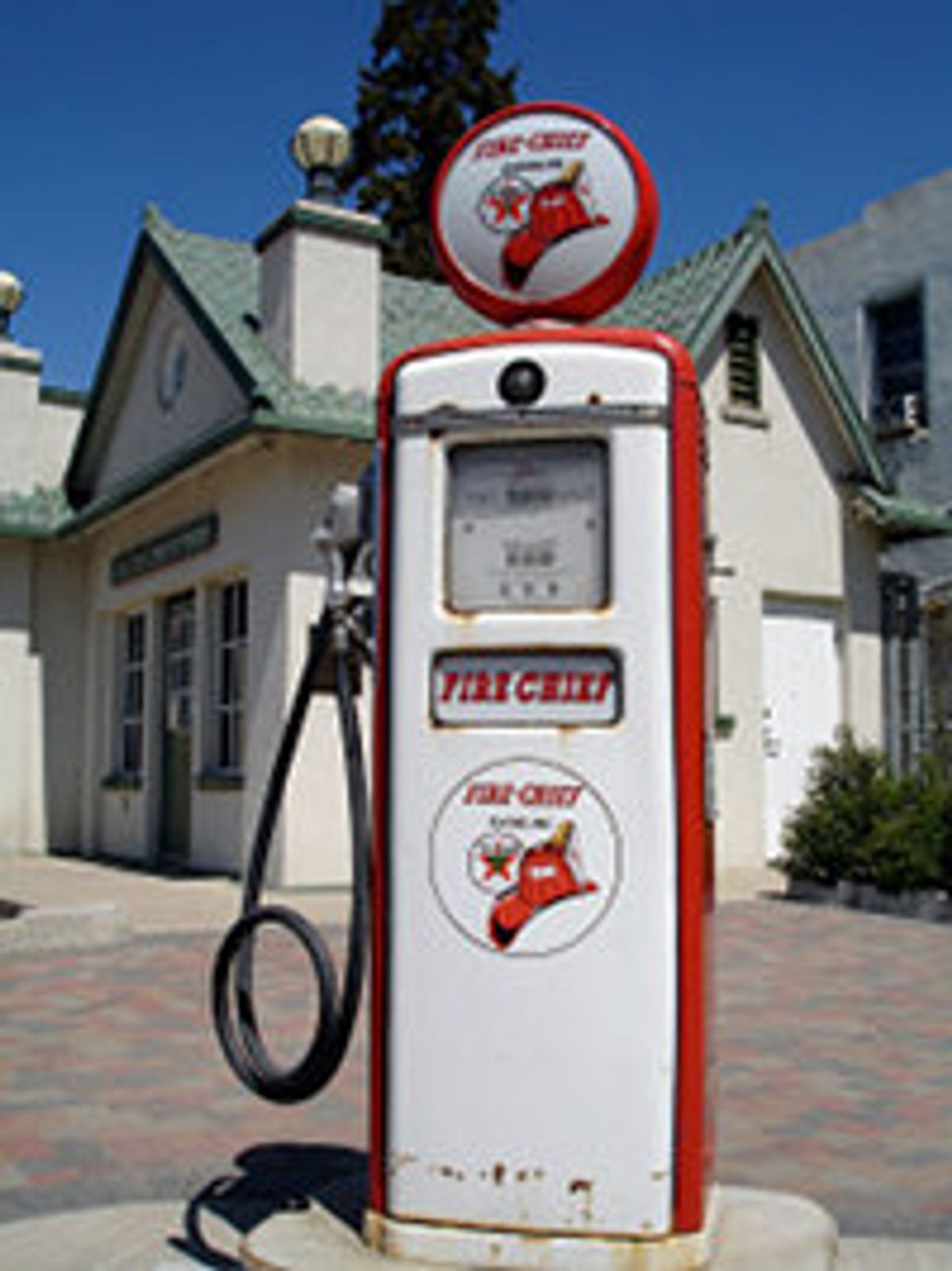"Americans are burning an average of 8.2 million barrels — 344 million gallons — of gasoline per day in 2010, a figure that excludes the ethanol blended into gasoline. That's 8 percent less than at the 2006 peak, according to government data."
Also, Americans will burn 20 percent less gasoline in 2030 than they do today. However, as the AP article does note, this is far from a done deal. There have been declines in demand before, and there's no reason that shifts in the economy or marketplace in the future couldn't shift the demand trajectory as well. The Washington Post has a timeline of gas use and demand since the first gas station was built in 1905, and it highlights just how volatile -- over the long term, at least -- gas demand can be.
Also, there are caveats: as mentioned above, the 8.2 million barrels burned each day in 2010 does not include ethanol blended into the gasoline. If we're talking only about gas, fine, but if the point is to examine the impact of this declining demand then that note becomes important. The bulk of environmentalists, and some of the government at this point, believe that corn ethanol carries its own set of environmental risks and may not even have much of a greenhouse gas emission benefit over gasoline. With ethanol mandated to make up about a quarter of all gas bought at the pump in 2022, are we really sure that the resulting decline in oil-based gas demand is such a great thing?
Even aside from the ethanol questions, a decline in gas demand doesn't necessarily translate directly into greenhouse gas emissions savings. Improved fuel economy -- one of the factors involved in the anticipated demand decline -- can certainly lower emissions, but among the reasons for that improved fuel economy is the use of plug-in hybrid and electric vehicles. What electricity source is powering those vehicles? If it's coal, then we'll have traded one dirty energy source for another, limiting the greenhouse gas savings.
Declining gasoline demand is clearly better than increasing demand, but such issues are rarely completely straightforward when it comes to the impacts.
(Image via Daryl Mitchell/Wikimedia Commons)
Dave Levitan is the science writer for FactCheck.org, where he investigates the false and misleading claims about science that U.S. politicians occasionally make.




